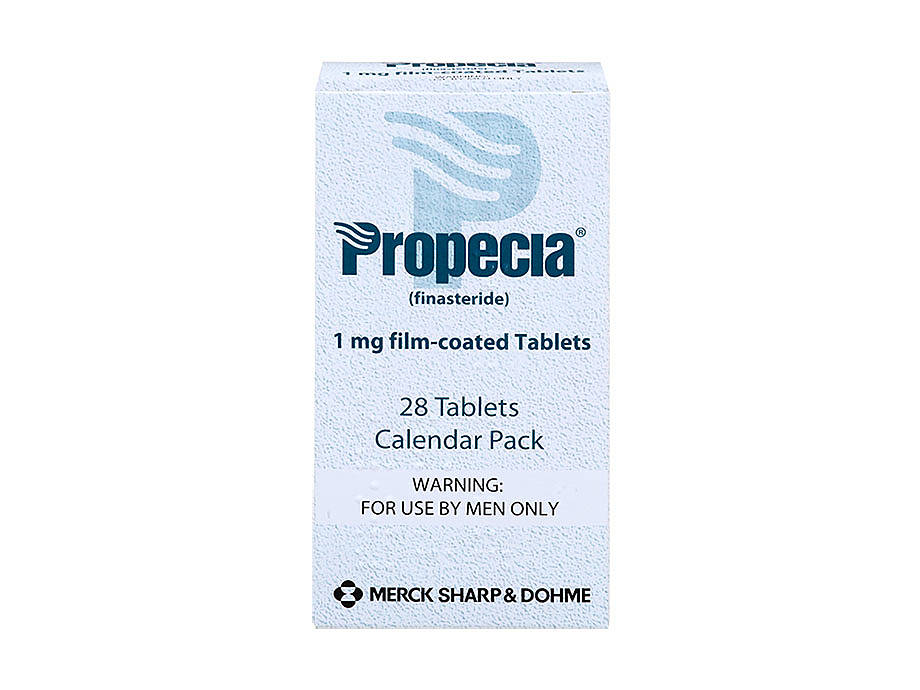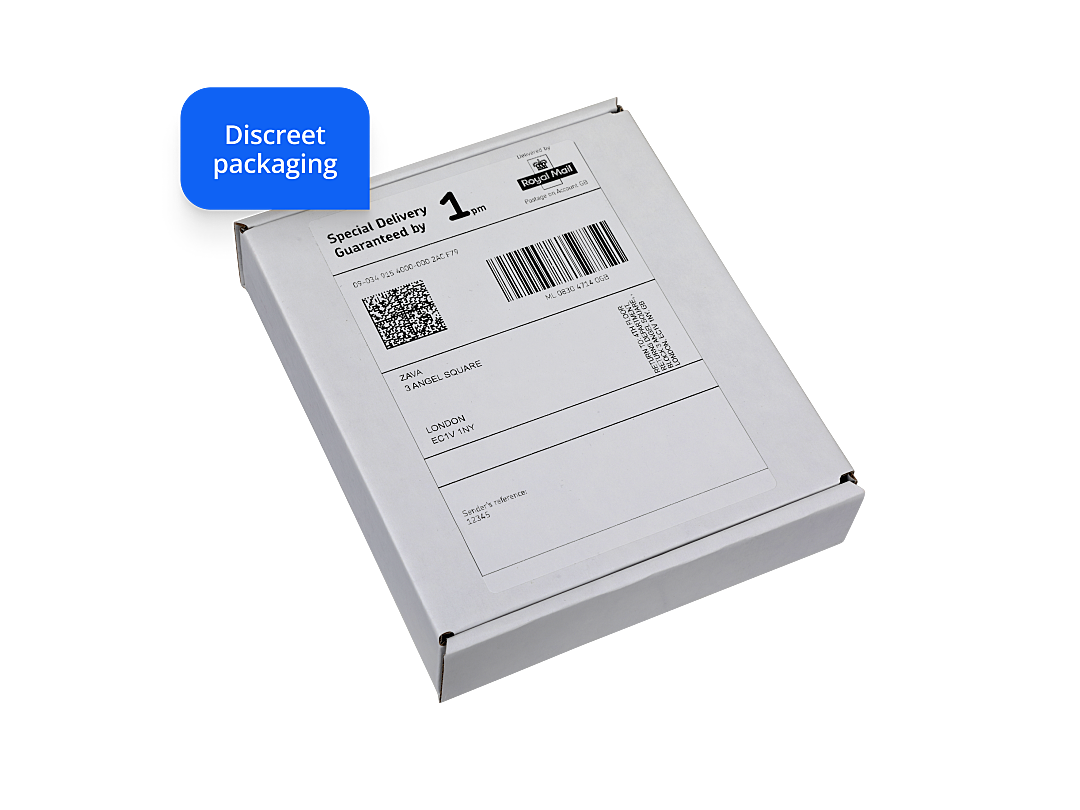Propecia
Propecia is a prescription-only hair loss treatment that can treat and slow down male pattern baldness in men.




Prices from £41.00
In stock. Simply fill in a brief consultation questionnaire and one of our doctors will review your request today.
-
Propecia is a male pattern hair loss (androgenetic alopecia) treatment. Propecia can treat male pattern hair loss by preventing the loss of further hair and encouraging new hair growth.
Propecia is the branded name for tablets that contain the active ingredient finasteride. The usual dose is one 1mg tablet, once a day. You can take Propecia for as long as you need and most men see the best effect when used for a long time.
Prices
28 tablet(s) / 1 mg - £41.00
56 tablet(s) / 1 mg - £80.00
84 tablet(s) / 1 mg - £105.00
168 tablet(s) / 1 mg - £195.00



About Propecia
-
-
Propecia is a treatment for male pattern hair loss. It can stop further hair loss and encourage new hair growth, as it reverses some of the balding process. Propecia contains the active ingredient finasteride. You can use Propecia if you have mild to moderate hair loss. It will not work if you have complete hair loss.
-
-
The recommended dose of Propecia is 1 tablet, every day, for as long as required. Each tablet contains 1mg of finasteride. The tablet can be taken with or without food. If you take more tablets than you should, speak to your doctor straight away. If you forget a dose, take your next tablet when it is due. Do not take a double dose, this will not make Propecia work faster.
-
-
Propecia contains the active ingredient finasteride, which is a 5-alpha reductase inhibitor. It works to reduce the levels of DHT, which is a hormone called dihydrotestosterone. DHT can cause your hair to get thinner and decreases hair growth on the head. As finasteride lowers DHT it can help to stop balding, preventing further hair loss and increasing the growth of your hair.
-
-
Propecia has been found to work in 9 out of 10 men. One study found that finasteride maintained the look of men’s hair and stopped further hair loss, or had an improvement in the amount of hair they had, over a 5 year period. Propecia should be taken for 3 to 6 months to see results and should be taken for a long time for the best results.
-
-
Propecia may cause side effects but most of these will go away once your body has gotten used to the treatment. If you get any side effects that do not go away, speak to your doctor. You should stop taking Propecia straight away and speak to your doctor if you get:
- depression
- symptoms of an allergic reaction, such as swelling in your face, lips, tongue, and throat, and breathing difficulties
Uncommon side effects include:
- problems with ejaculation, such as a decrease in the amount of semen released during sexual activity
- erectile dysfunction
- less desire to have sex
There are other side effects that Propecia may cause but the frequency of these are not known. For more information on other side effects, refer to the patient information leaflet which can be found inside the tablet packet, or online here.
-
-
Propecia is used in the treatment of male pattern hair loss in men who are over 18 years old and do not have any allergies to the ingredients in the tablets. Propecia is not suitable for everyone and should not be taken if you:
- are female
- are taking finasteride or dutasteride for another condition called benign prostatic hyperplasia (BPH)
If you are due to have a blood test for prostate cancer called prostate-specific antigen (PSA), you must speak to your doctor before taking Propecia, as this could affect the results.
-
-
Propecia has not been found to interact with other medications but speak to your doctor before taking Propecia if you do take other medications. You can drink alcohol whilst taking Propecia.
Propecia should be avoided by pregnant women as it can affect the baby’s sex organs. Pregnant women or women who are planning on getting pregnant should not touch or crush the tablets. If your sexual partner is pregnant or looking to become pregnant, you should use a condom or stop taking Propecia.
You should also speak to your doctor if you have an intolerance to some sugars, as Propecia contains lactose.
-
-
ZAVA stocks 2 treatments for male pattern hair loss which are Propecia and finasteride. Finasteride is the unbranded version of Propecia and they work the same way. There is also a foam called minoxidil that can be used to treat male pattern hair loss and can be used at the same time as Propecia. If you do not want to take medication, there are alternative treatments which might be appropriate for some men, such as:
- tattooing
- wigs
- steroid creams or injections
- immunotherapy
- hair transplant
- scalp reduction surgery
You may be able to get some of these treatments on the NHS, but this will depend on whether you qualify for financial help, or have a medical condition. You can also get these treatments privately.
-
-
Propecia is the branded version of finasteride and is only used to treat male pattern hair loss. Finasteride can be used in the treatment of benign prostatic hypertrophy (BPH).
-
-
No, Propecia can only be prescribed privately for male pattern hair loss.
-
-
Propecia can help to treat male pattern hair loss and stop balding but it cannot cure it. There is no cure for male pattern hair loss currently but there are alternative treatments.
-
-
If you stop taking Propecia, you will begin to lose any hair that has grown during your treatment. Your treatment will stop working and you should see your hair go back to how it was before taking Propecia within 9 to 12 months. Speak to your doctor before you stop taking Propecia.
-
-
Free Standard Delivery – Free
This will be contactless delivery. No signature will be required, and your parcel will be left on your doorstep. We dispatch orders every day from Monday to Friday. If placed before 4pm, your order will be dispatched the same day. Orders placed after 4pm will be processed and sent out the next working day.
Next Day Click & Collect – Free
Collect your order from any Royal Mail post office. You will receive an email or SMS as soon as your order is ready for collection. Your order will be available to collect from the Post Office for up to 18 days. Proof of Identification will be required for collection.
Next day delivery – £3.99
This will be a contactless delivery but will require someone to be home to receive the item. If placed before 4pm, your order will be delivered the next working day.
You'll be asked to choose a delivery option when you check out. Options may vary depending on the pack size and dose you choose. You can find out more about delivery and collection options, on our delivery page.

Dr Babak Ashrafi Clinical Lead for Service Expansion
Accreditations: BSc, MBBS, MRCGP (2008)
Babak studied medicine at King’s College London and graduated in 2003, having also gained a bachelor’s degree in Physiology during his time there. He completed his general practice (GP) training in East London, where he worked for a number of years as a partner at a large inner-city GP practice. He completed the Royal College of GPs membership exam in 2007.
Meet our doctorsLast reviewed: 13 Jan 2022
-
Finasteride (2020) NHS (accessed 30 November 2021)
-
Finasteride: a review of its use in male pattern hair loss (1999) PubMed (accessed 30 November 2021)
-
Hair loss (2021) NHS (accessed 30 November 2021)
-
Propecia 1 mg Film-Coated Tablets (2021) EMC (accessed 30 November 2021)
-
Use of Finasteride in the Treatment of Men With Androgenetic Alopecia (Male Pattern Hair Loss) (2003) Science Direct (accessed 30 November 2021)
As well as topical treatments like shampoos, you can also treat your hair loss with oral tablets. ZAVA offers both shampoos and oral tablets to help reduce hair loss and promote new hair growth.








